Disaster
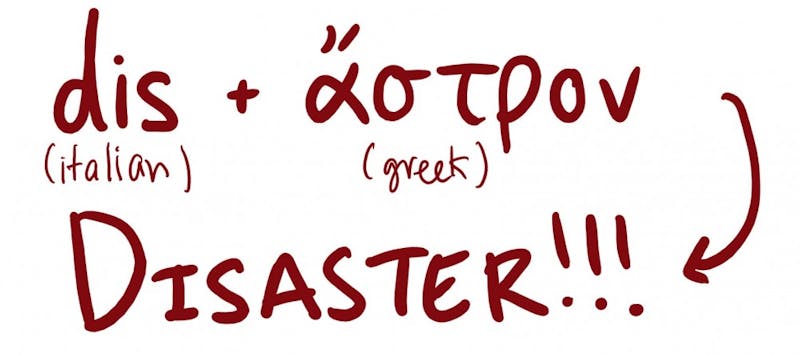
The word disaster stems from the French word “désastre,” which is derived from the Old Italian word “disastro.” All three variations of disaster evolved from the latin “dis” and ancient Greek “astron,” which together was interpreted as “bad star.” The ancient Greeks studied astronomy and the cosmos, so “disasters” are due to some unfavorable alignment of the universe. If your life seems to be utterly falling apart mid-week seven, blame the stars.
Avocado
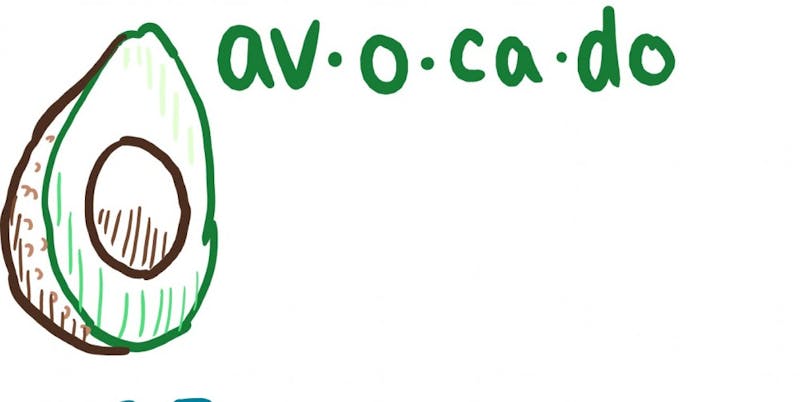
The Avocado Craze is real. The ahuacate, the Aztec form of everyone’s favorite overpriced fruit, had been an important part of the Central and South America diet dating back to 500 B.C. Around the early 1900s, the ahuacate made its way to the United States, but California farmers found the fruit hard to market to Americans because of its difficult pronunciation in English. To make things even worse, it was also the Aztec word for testicle, based on its shape and the belief it was as an aphrodisiac. The farmers decided to rename the crop “avocado,” and the rest is history. So the next time you see yourself tempted to buy an avocado at Collis, perhaps knowing the origin of the word will save you some DBA.
Nickname
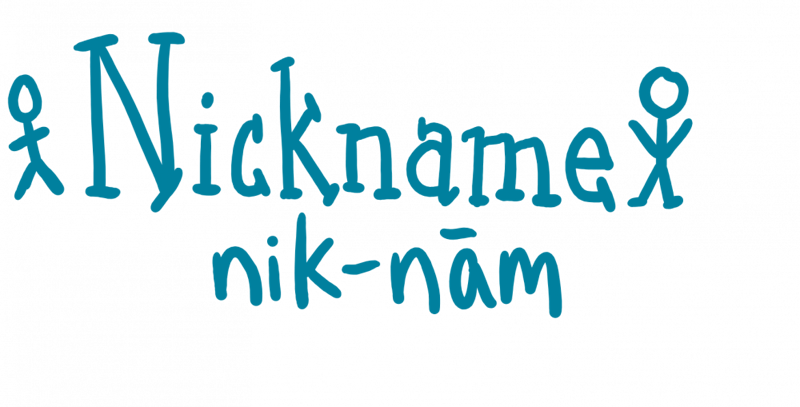
Whether it’s an endearing childhood name or a recently developed label that will never be lived down, most people seem to have some sort of nickname — for better or for worse. Around the thirteenth century, a nickname was known as “ekename”, meaning “additional name.” Ekename stems from the Middle English word “eke,” translating to “an addition.” In Medieval script, words were often written so close together that it was hard to tell where one began and another ended. The articles “a” and “an” preceding words often got mixed up. This shift in the original word occurred around the 16th century, shifting from an “eke name” to slowly becoming a “neke-name” and now “nickname”.
Oxymoron
It was seriously funny seeing my professor clearly confused as we sat in the deafeningly silent classroom. Oxymorons, phrases in where seemingly contradictory terms appear in conjunction, are the gems of the English language. The roots “oxys,” standing for sharp or keen, and “moros,” standing for foolish, make the word oxymoron itself an oxymoron. Those Greeks were just too smart.
Awkward

The word awkward is one of my favorite adjectives, and I use it to describe just about everything. It is built of two parts: “awk-” and “-ward.” “Awk” stems from an Old Norse word that translates to “turned the wrong way.” The suffix “-ward” is a directional word from Old English’s “-weard.” Put these parts together and you get something awkward: “turned toward turning the wrong way.” No wonder we just want to walk away from awkward situations.
Nice
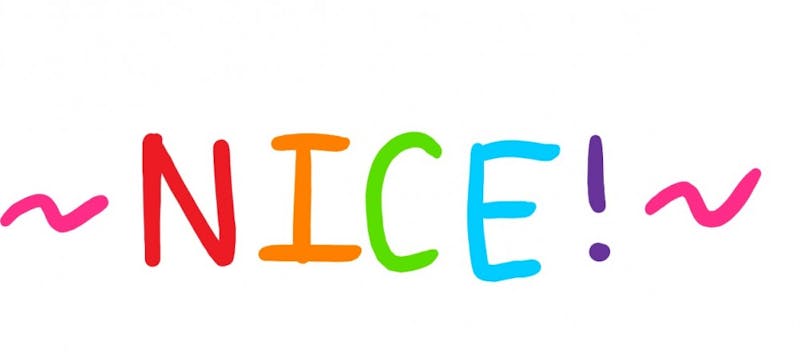
Don’t we all like to be called nice? Looking back at the etymology of this word, maybe we should think again. Nice comes from the Latin “nescius,” which means “ignorant,” and was used to call someone a fool. Starting in the late 1300s, nice began to refer to things that were considered luxurious. By the 1400s it was used to refer to people who were well dressed and put together. A century later, nice began to have similar connotations as it does today and was used to describe sophistication.
Sarcasm
I can’t express the number of times I’ve tried to make a sarcastic joke but instead ended up unintentionally offending the other person. Sarcasm comes from the late Greek word “sarkasmos.” This word is derived from “sarkazein”, meaning “tear off the flesh.” This takes the term roasting to quite the extreme. I’m glad the standards of sarcasm have toned down a little since then.
Muscle
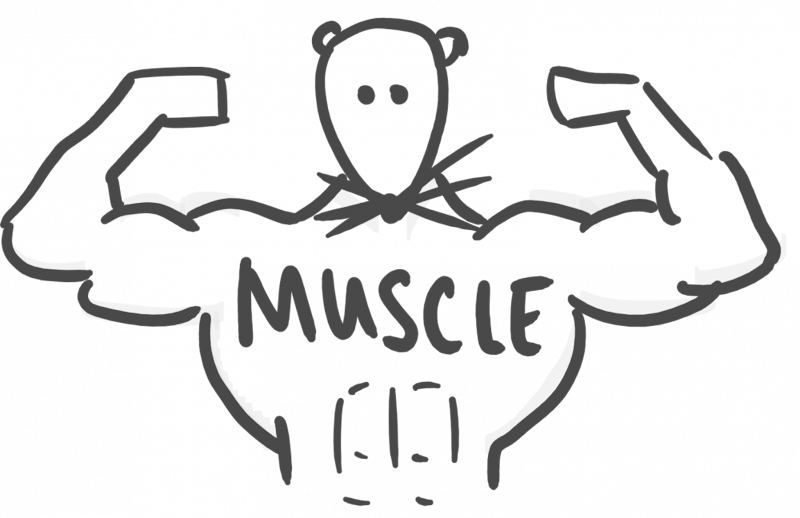
The word muscle comes from the Latin word “musculus,” meaning “little mouse.” “Musculus” was used as the medical term for muscle because some believed the muscles resembled mice. More gains, more mice?
Mortgage
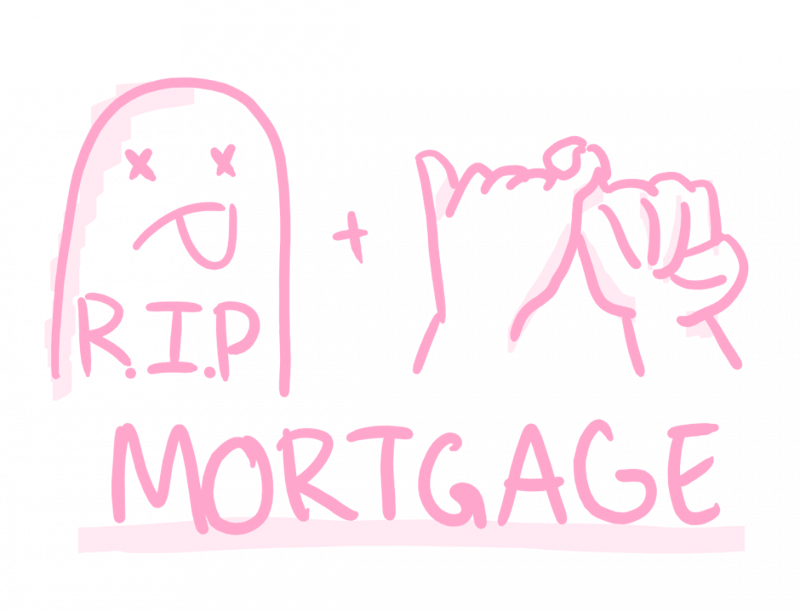
Adulthood is jobs, taxes and mortgages, and frankly, it does not sound too appealing. Needless to say, the word mortgage itself is scary. However, its etymology may be even scarier. It is derived from the Old French for “death pledge.” Proof that finances are truly the death of us. Can we please just stay in college forever?
Goodbye

So long, farewell, auf Wiedersehen, goodbye. We’re on our last word, which means we’ll have to soon say goodbye. This classic parting address has its roots in the late 16th century as a contraction of the phrase “God be with you.” In letters it was often shortened to forms that resemble archaic texting abbreviations, such as “Godby’e” and “God b’w’y,” which eventually resulted in the “goodbye” we use today.



